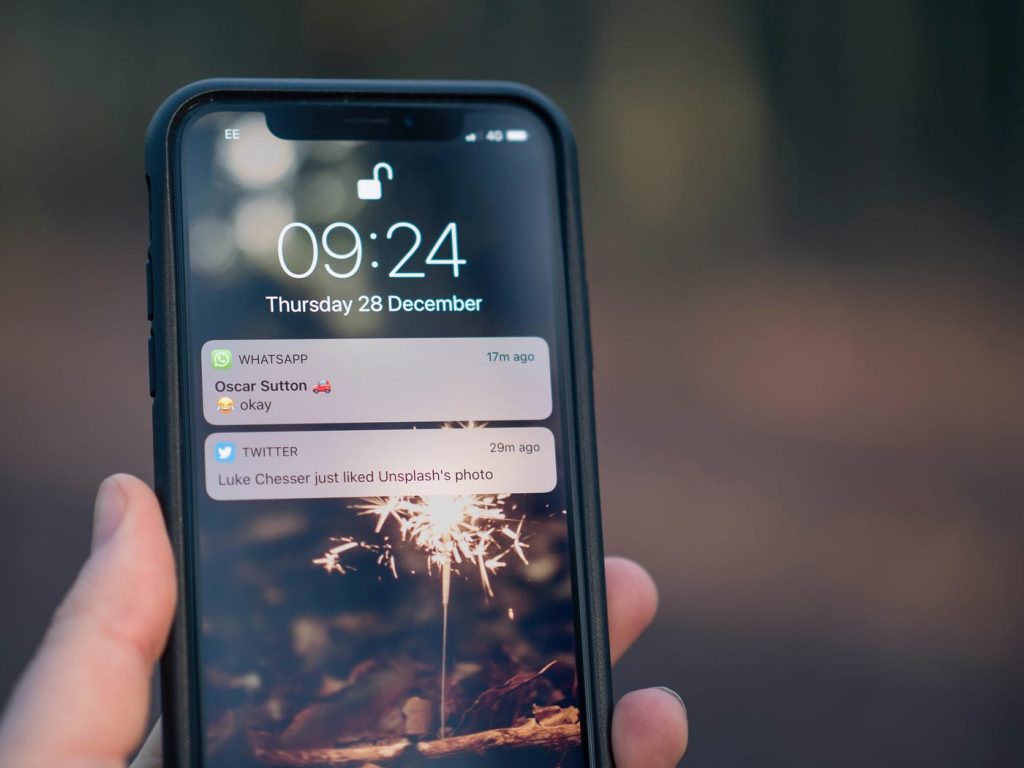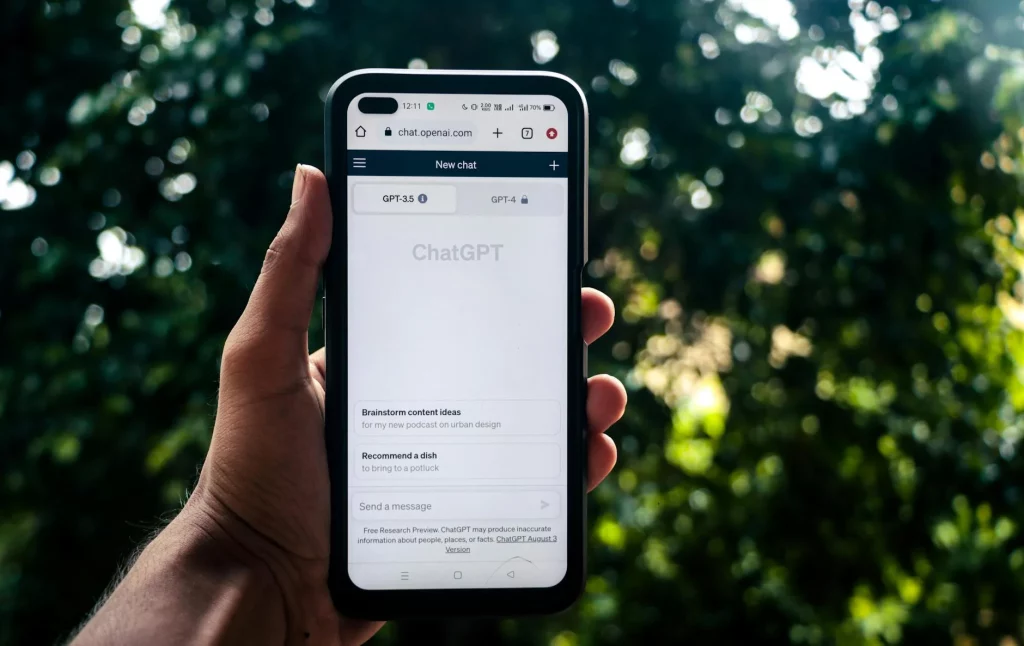Phone notifications fill every quiet moment—at home, at work, even when we try to rest. They demand attention with sounds and vibrations, pushing our brains to switch focus in an instant. Over time, these constant signals can unsettle your mood, steal focus, and disrupt memory.

Heavy notification use is now linked to higher stress, anxiety, and even poor sleep. Scientists find that each buzz or ping triggers brain chemicals that make checking your phone feel rewarding but also drain your ability to concentrate. As these alerts turn into habits, they shape not only what you remember, but also how you feel throughout the day.
Understanding how notifications pull at your attention and tweak your mood is the first step in making smarter choices about your connected life. In this post, you’ll learn why constant connectivity changes how the brain works, what this means for mental health, and how a few changes can help restore calm and focus.
How Notifications Hijack Attention
Smartphone notifications aren’t just distractions. They tap into the deepest wiring of the human brain—designing their alerts to cut through any task and grab your attention. To understand why they work so well, it helps to look at how our brains evolved and what makes us so drawn to every “ping” or buzz.
Every buzz and ping doesn’t just steal a second of your time—it reshapes how your brain works and how you feel.
The Brain’s Built-In Alarm System
Thousands of years ago, quick shifts in attention could mean life or death. Our ancestors needed to react fast to sudden sounds or changes in their environment. This habit helped them survive dangers, like predators or threats. Today, that same alarm system kicks in whenever a phone buzzes or lights up.
Modern notifications hack this evolutionary wiring:
- Each alert mimics a sudden change in the environment.
- Your mind treats it like urgent news, even if it isn’t.
This triggers a rush of adrenaline and a spike in curiosity, making it hard to ignore your phone—even during important work or personal moments.
The Salience Network: Mistaking Noise for Importance
Inside your brain, the “salience network” filters what you notice from all the information you experience. It helps you decide what deserves your focus—like a baby’s cry or a fire alarm.

But phone notifications trick this system. Your brain can’t always tell the difference between real danger and a simple app alert. The salience network fires up with each ping, forcing your attention to the screen.
This leads to:
- A sense of urgency with every alert
- Frequent, involuntary shifts in focus
- A growing habit to check your phone—just in case something important pops up
Eroding Focus, Fueling Compulsive Checking
The more you respond to notifications, the less time your brain spends in deep, focused work. Instead, it bounces from one alert to the next, breaking tasks into smaller, less productive chunks.
Some effects of constant alerts:
- Shorter attention spans
- Trouble remembering what you just did
- A cycle of compulsive checking that feels impossible to break
Most people don’t realize the toll until they try to concentrate and find they can’t go more than a few minutes without glancing at their device.
Key takeaway: Our brains are built to respond quickly to interruptions. But when every phone buzz tricks those systems, real focus gets lost. The next section will show what this means for mood, stress, and mental health.
The Dopamine Loop: Rewards and Habit Formation
Our brains are wired to seek out rewards, and this wiring is central to how habits form in daily life. Notifications use the brain’s own reward system to pull us in and keep us checking, often without us realizing why it feels so hard to stop. The dopamine loop is at the heart of this cycle, and it explains why just one buzz can set off a chain reaction that’s tough to break.
Dopamine’s Role in Reward and Motivation
Dopamine is a powerful brain messenger that shapes what you want and how hard you work to get it. It motivates us to seek rewards, whether that’s tasty food, praise, or digital feedback. Each time you hear a new notification, your brain releases a burst of dopamine. This chemical surge boosts alertness and drives you to check your phone.

Here’s how dopamine helps build habits:
- Anticipation matters most: Dopamine isn’t just about feeling pleasure after getting a reward; it spikes when you expect a possible reward.
- Unpredictability is sticky: The less predictable the reward, the stronger the dopamine spike. This is why random notifications keep you checking, even if most alerts bring little pleasure.
The Habit Loop: Cue, Action, Reward
The brain follows a simple three-step loop whenever you build a habit:
- Cue: Something triggers your attention (like the sound or vibration of a notification).
- Action: You respond (by picking up your phone).
- Reward: You get something that feels good or interesting (a message, a like, or new information).
Over time, just the cue (the ping or buzz) is enough to make you crave the action, even if the reward is missing or weaker than before. Your brain has linked the cue and action tightly, so you react with barely any thought.
Here’s a quick table showing how the habit loop lines up with phone notifications:
| Habit Loop Step | Example with Notifications | Brain Effect |
|---|---|---|
| Cue | Phone buzz or screen light | Dopamine spikes |
| Action | Check or unlock phone | Routine is built |
| Reward | Message, like, or update | Temporary satisfaction |
Notifications and the Machine Effect
Phone alerts don’t just use any reward pattern—they mimic the psychology of machines. When you check your device, sometimes you find something good (a funny meme from a friend, a new follower), but often you find nothing special. This unpredictability makes the habit even stronger.
Why do machines pull people in? Because they give rewards on a variable schedule:
- You never know when you’ll hit the jackpot.
- Most spins give nothing or very little, but the chance is always there.
- The brain’s reward system responds strongest when rewards are random and rare.
Notifications behave in the same way. Most don’t offer meaningful news, but every now and then, there’s a small thrill—just enough to keep you coming back.
Compulsive Checking and Diminishing Returns
As this dopamine loop repeats, you can find yourself checking your phone even when it rarely brings happiness. The anticipation is addicting, but the actual reward fades. Over time, satisfaction drops and checking becomes automatic—a reflex, not a conscious choice.
- Most people feel the urge to check long after the original thrill is gone.
- As the habit deepens, the brain moves from “goal-driven” checking (seeking something specific) to “habit-driven” (responding to cues and boredom).
Despite low satisfaction, the habit is locked in by the brain’s reward system. Understanding the dopamine loop helps explain why breaking free is so challenging, and why constant notifications are more than just a small distraction—they literally shape what you do next.
Cognitive and Emotional Consequences
Constant notifications do more than fracture your attention—they quietly reshape how you think and feel. These pings create a near-constant state of alertness, adding stress to your mind and stirring up emotions you might not even notice day-to-day. Over time, the brain gets rewired by these ongoing interruptions, leaving lasting marks on concentration, mood, and emotional balance.
Phantom Notifications and Perception Changes
Some people feel their phone vibrate when it hasn’t. Others hear a ring or ping that never happened. Scientists call these episodes phantom vibration and phantom ringing syndrome. These experiences offer a vivid look at how much notifications can train the mind to expect new alerts, even when they’re not there.
These false alarms aren’t rare. Surveys suggest over half of smartphone users have felt their phone vibrate in their pocket—only to check and find nothing there. It’s your brain on autopilot, conditioned by constant alerts to stay on high alert. The senses and the mind begin to blend expectation with reality.
- Phantom vibrations: You feel a buzz on your leg or in your pocket, but the phone is silent.
- Phantom ringing: You hear your personalized alert tone, but no call or text has come through.
These are more than minor annoyances. They point to a rewiring of sensory processing. The prefrontal cortex (the critical brain area for focus and decision making) responds as if the phone really went off, triggering distraction and a momentary search for a reward that isn’t there. Each episode strengthens the habit, reinforcing the loop between cue and expectation.
Decreased Concentration, Attention Fatigue, and Stress
Every alert pulls focus away from what you’re doing. When this happens all day, it becomes difficult to sustain attention for meaningful work or conversation. The brain, already juggling tasks, burns extra energy to recover from each switch. This process, called attention residue, means you never quite get back to your original task with full clarity.

Repeated interruptions drain your mental resources. They wear down the brain’s prefrontal cortex, the area responsible for self-control and maintaining focus. Research has found:
- Slower reaction times and more mistakes during tasks interrupted by notifications
- Longer periods needed to refocus after each disruption
- Increased feelings of overwhelm, anxiety, and frustration, especially as to-do lists grow
The cycle of alert-check-refocus leads to chronic stress, making you feel on edge even when no new notifications appear. Over time, this constant cognitive load can lead to burnout.
Mental Health Risks: Anxiety, FOMO, Emotional Dysregulation, and Depression
 Too many notifications don’t just make you tired—they can push your emotions into unhealthy territory. Frequent alerts are linked to:
Too many notifications don’t just make you tired—they can push your emotions into unhealthy territory. Frequent alerts are linked to:
- Higher anxiety levels: The need to check messages creates a sense of urgency and restlessness.
- Fear of missing out (FOMO): Not answering fast enough or seeing updates late taps into the fear of being left out.
- Difficulty managing emotions: Interruptions make it harder for your brain to process feelings, which can make moods swing more quickly.
- Increased risk of depression: Studies have linked heavy phone use and frequent notifications to deeper sadness and isolation, especially among teens and young adults.
People with high FOMO or those who crave social validation may feel these effects even more. Emotional health can suffer, as the brain rarely finds real rest. The loop between checking for good news and feeling let down when none appears feeds a cycle of disappointment.
What Happens in the Brain: Impaired Prefrontal Cortex Function
Neuroscience points to the prefrontal cortex as the control center for attention, planning, and self-regulation. With repeated interruptions:
- The brain’s cognitive control weakens, making it harder to resist impulses.
- Regular disruptions make the prefrontal cortex less able to filter distractions, leaving you more vulnerable to stress and poorer decision making.
Neural pathways change. With enough exposure, your brain learns that anything could be urgent, whether it’s a work email or a random meme. Over time, the lines between real emergencies and digital distractions start to blur.
Key points to remember:
- Constant notifications retrain your senses and cognition, sometimes causing false perceptions.
- Alert-driven multitasking leaves you mentally drained, distracted, and stressed.
- Too much connectedness can disrupt emotion regulation, increasing the risk for anxiety and low mood.
- Persistent interruption impairs the prefrontal cortex, making focus and self-control harder to maintain.
These changes add up, shifting the mind’s baseline for attention, mood, and even how reality is perceived.
Regaining Control: Practical Strategies
Notifications have a way of sneaking into every corner of daily life, stealing your focus before you even notice. The good news is, you can take back control. With a few clear strategies and some intentional routines, it’s possible to reset your habits, calm your mind, and support your long-term mental health.
Turn Off Non-Essential Notifications
 The simplest strategy for regaining peace is to cut down the number of alerts you receive. Most notifications are marketing or social updates you rarely need in real time.
The simplest strategy for regaining peace is to cut down the number of alerts you receive. Most notifications are marketing or social updates you rarely need in real time.
Start with this approach:
- Visit your phone’s notification settings.
- Silence or disable alerts for social media, shopping, and all non-critical apps.
- Keep only what’s necessary—like calls or texts from selected contacts, urgent calendar reminders, or essential work apps.
Less noise means fewer interruptions and less temptation to check out of habit.
Practice Intentional App Management
Not every app deserves your daily attention. Take a few minutes to reorganize your home screen and sort your apps by importance. Move distracting apps into folders or off your first screen if possible.
Consider:
- Deleting apps that add stress or never offer lasting value.
- Batching notifications (where allowed), so you get them at set times, not constantly.
- Using “Do Not Disturb” or “Focus” modes to silence all alerts when you need dedicated time for work, study, or rest.
These steps create digital boundaries, hinting to your brain that only urgent matters deserve immediate action.
Build Tech-Free Blocks Into Your Day
Letting your mind rest is as important as resting your body. Create phone-free spaces and times, even for just an hour a day. Some people find it easiest to start with meals, workouts, or the hour before bed.
To make your breaks effective:
- Put devices in another room during your downtime.
- Charge your phone outside the bedroom overnight.
- Set an auto-reply or custom status if you worry about missing something important.
This structure helps reset your brain’s baseline so that buzzes don’t always feel urgent.
Train Your Attention With Pomodoro and Mindfulness
Your brain needs practice to focus again after months or years of rapid switching. Techniques like the Pomodoro method (25 minutes focused work, 5 minutes break, repeated) help you practice sustained attention.
Mindfulness also plays a key role:
- Start with just five minutes a day of focusing on your breath.
- Notice when you feel the urge to pick up your phone, then pause before acting.
Mindful awareness isn’t about never checking your device, but about checking when you choose—not out of habit.
Use Tools to Support New Habits
Supporting your efforts with the right tech can make managing notifications easier:
- Try apps that track and limit screen time.
- Turn your phone’s display to grayscale, reducing the visual appeal of notifications and social media.
- Add browser extensions that block distracting sites during work hours.
A quick summary of these strategies:
| Control Strategy | What It Does | How to Start |
|---|---|---|
| Turn off alerts | Fewer distractions | Change app settings |
| App management | Removes triggers | Organize and batch apps |
| Tech-free blocks | Improves calm and focus | Designate device-free times |
| Mindfulness/Pomodoro | Rebuilds deep attention | Practice daily routines |
| Habit-support tools | Makes change stick | Try grayscale or app timers |
Turning down the noise and setting routines might feel strange at first. But over time, fewer interruptions give your brain a chance to recover, sharpen focus, and rediscover a calmer baseline.


Amazing One
I was recommended this website by way of my cousin. I’m no longer
positive whether this publish is written through him as nobody else realize such precise
approximately my difficulty. You’re incredible! Thank you!
@Sosyal İçerik Platformu I really appreciate your thoughtful comment! I’m happy the article spoke to you. Please say thanks to your cousin for the recommendation, and I’d love to hear more about your own experiences with this topic.
This article is a powerful reminder that change begins with awareness. Your words not only inform but also ignite a sense of responsibility in the reader. Thank you for shedding light on this topic.
I just love how your topics are always unique but still so relatable to our everyday lives! Do you usually get your ideas from what’s happening around you, or does someone suggest them? Honestly, your writing always grabs my attention, and I’m always excited to see when your next blog comes out!